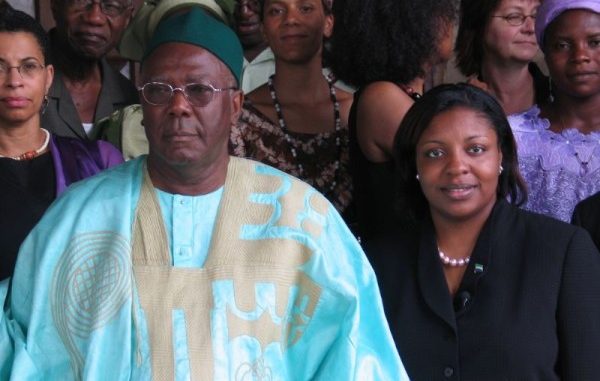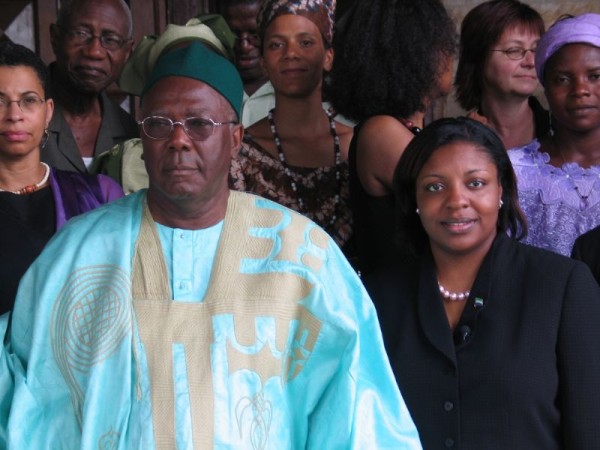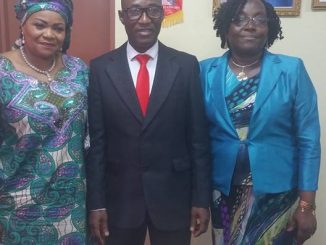
London, November 30, 2005 – Thirty of Sierra Leone’s development partners expressed their confidence in the government’s plans for poverty reduction in one of the world’s poorest countries with aid promises for 2005 – 2007 totaling $800m, after two days of talks in London this week.
Three key themes of the discussions were food security, employment – particularly youth employment – and governance. Development partners also agreed plans to improve the effectiveness of aid programmes through greater donor coordination and more focus on the government’s own poverty reduction strategy.
UN Resident Coordinator in Sierra Leone Victor Angelo said: ?The many countries and multilateral organizations represented at this meeting have recognized the tremendous progress achieved by the government and people of Sierra Leone in the short period since the end of the civil war – and given a significant vote of confidence to the government’s poverty reduction strategy.’
Co-chaired by the Government of Sierra Leone, the UK Department for International Development (DFID) the United Nations and the World Bank, the Consultative Group for Sierra Leone met in London on November 29 & 30. President Ahmad Kabbah and Vice President Solomon Berewa led the Sierra Leone delegation.
Since ending its civil war in January 2002, Sierra Leone has re-established security and begun the process of restoring public services. An annual GDP growth rate averaging about 7% over three years since 2002 emphasises how far the country has progressed, with the IMF predicting future growth of 6-7% per year. A key achievement was the successful completion of the first local government elections in 32 years in May 2004.
Half a million children have been enrolled in primary school since the abolition of fees in 2002. Child mortality rates, though still among the world’s highest, are in steady decline with child immunisation rates almost doubling between 1997 and 2004. Nevertheless, just over 70% of the country’s more than five million inhabitants still live in poverty, on incomes of less than $1 a day and Sierra Leone retains the dubious distinction of featuring 176th out of 177 countries on the UN’s Human Development Index.
At the opening of the Consultative Group meeting, UK Secretary of State for International Development Hilary Benn said: ?Our commitment to Sierra Leone remains strong. The country has made significant progress in rebuilding the general machinery of government and in introducing reforms to help sustain peace, stability and encourage further economic growth.
?The Government has demonstrated its commitment to combat corruption by creating an Anti-Corruption Commission and introducing new procurement rules. But more work is needed to tackle corruption and ensure that services reach the poor, progress which is essential if the Poverty Reduction Budget Support Programme is to be realised.’
President Kabbah responded in his address: ?I am fully aware that the biggest concern for many of our development partners is the level of our commitment to fighting corruption and the manner in which we are able to provide demonstrable results in this area. We welcome this concern and wish to assure the donor community and our people that we take the fight against corruption very seriously.’
At the conclusion of the meeting, World Bank Country Director for Sierra Leone Mats Karlsson welcomed the constructive outcome of the talks: ?We have made substantial progress here and demonstrated a real commitment to turning a fragile success into a robust one.’
Ends
- For more information on the World Bank’s work in Sierra Leone and the role of the Consultative Group, go to:www.worldbank.org/sierraleone
- Participants at the Consultative Group meeting included representatives from Algeria, China, Denmark, Egypt, Germany, Ireland, Italy, Japan, Norway, Sweden, Switzerland, the United Kingdom, the United States, the African Development Bank, the European Commission, the Food and Agricultural Organization, the International Committee of the Red Cross (ICRC), the International Finance Corporation, the International Fund for Agricultural Development, the International Monetary Fund, the Kuwait Fund for Arab Economic Development, the Saudi Fund for Development, UNAIDS, UNDP, UNEP, UNHCR, UNICEF, the World Food Programme, the World Health Organisation and the World Bank.
- For full details of the outcome of the discussions at the Consultative Group on Sierra Leone please see attached final Communique.





Leave a Reply